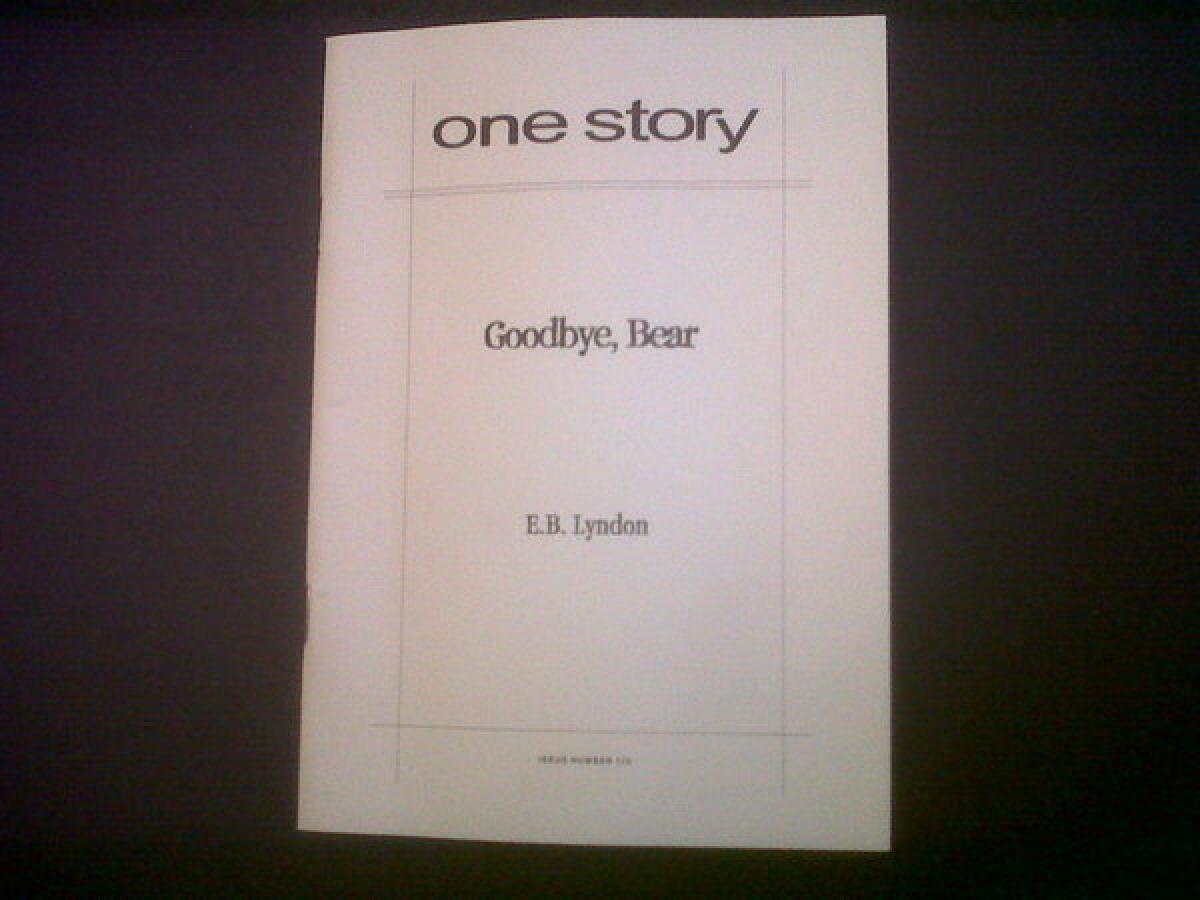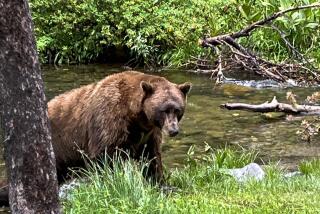E.B. Lyndon’s member of the wedding

I’d never read E.B. Lyndon before her story “Goodbye, Bear” appeared as the latest issue of the literary magazine One Story — but I’ll be keeping an eye out for her from now on. Narrated by a single woman in her late 20s, “Goodbye, Bear” offers up a drama in a minor key involving family, love, loneliness, alienation (all my favorite subjects), but even more, the question of how, and whether, we commit.
“Have you ever put yourself in something,” Lyndon’s narrator wonders at the end of the story, “really drowned yourself in it, just to have another place to call home for a little bit? Only to realize the new place was no different than the last place? What I wanted: to find the love who would give me the freedom to evolve — without fearing I’d lose everything if I changed.”
“Goodbye, Bear” is a saga of dislocation, a narrative defined by drift. From the moment we meet her, a week before her brother’s engagement party, the narrator — identified entirely by nickname: “Seed” to her parents (how excellent is that?), “Bams” to her boyfriend Blago — is caught between past and present, trying to excavate her feelings about her brother, newly born again, her home, her parents, her own life.
Her boyfriend lives across the country; they communicate primarily by Skype. “Kinky story?” he begs, one evening, to which she responds by telling him about her brother, age 8, playing “Animal, Vegetable, Mineral” on a ski lift until he ultimately throws up.
There’s a risk to this sort of indirection in a piece of fiction, the risk of seeming contrived or fey. And yet Lyndon writes with a tough edge, giving nothing, taking us into territory we both believe and don’t expect.
Partly, this has to do with One Story: Each issue features a single work of short fiction, published as a stand-alone. As such, there is no frame, no collection to offer context; the only context is in reading the piece on its own terms.
At the same time, it all comes back to Lyndon, to her voice and sensibility and the relentless way “Goodbye, Bear” takes shape on the page. This is a story in which the only resolution is that there is no resolution, and the only option before us is to figure out a strategy, somehow, for living with ourselves.
“Two years later,” the narrator tells us, “I would be with another man. I would place my heart in the mouth of a lion for him, and he would say, ‘I just don’t know if your well of love runs deep enough,’ and there would be my insight. What a coward I’d been!”
ALSO:
Building a desert reading list’
‘On the Road’ toward mortality: A critic ponders Jack Kerouac
A busload of poets: Michael Zapruder’s ‘Pink Thunder’
More to Read
Sign up for our Book Club newsletter
Get the latest news, events and more from the Los Angeles Times Book Club, and help us get L.A. reading and talking.
You may occasionally receive promotional content from the Los Angeles Times.










